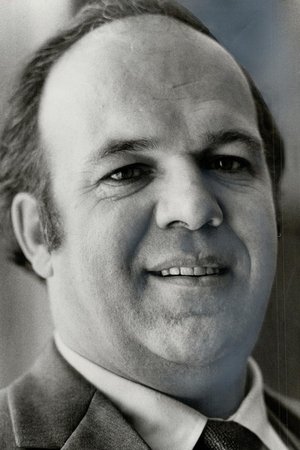Louis Quilico (1925-2000)
Birthplace:
Montréal, Québec, Canada
Born:
January 14, 1925
Died:
July 14, 2000
Louis Quilico, CC (January 14, 1925 – July 15, 2000) was a Canadian opera singer. One of the leading dramatic baritones of his day, he was an ideal interpreter of the great Italian and French composers, especially Giuseppe Verdi. He was often referred to as "Mr Rigoletto" in reference to the Verdi opera. During his 45-year-long career he shared performing credits with opera's greatest stars. He spent 25 consecutive years at the Metropolitan Opera in New York City. After his retirement from the stage in 1998 he continued to perform and record, most often with his second wife, pianist Christina Petrowska Quilico, CM OOnt FRSC, with whom he made four CDs. The couple also toured together extensively in concerts until Quilico's death in 2000. Quilico received the Governor General's Performing Arts Award, Canada's highest honour in the performing arts, in November 1999 for his lifetime contribution to classical music. Louis Quilico was born in Montreal, Quebec, of an Italian father and a French-Canadian mother. He studied singing as a youth with Frank H. Rowe in his native Montreal while singing as a solo chorister in a church choir. After winning a prize in 1947, at the urging of the pianist and vocal coach Lina Pizzolongo, he continued his studies in Italy, studying at the Accademia Nazionale di Santa Cecilia in Rome with Teresa Pediconi and baritone Riccardo Stracciari. With the aid of a scholarship he also studied at Mannes College, New York, with Martial Singher (voice), Ralph Herbert (staging) and Emil Cooper (repertoire), and at the Conservatoire de musique du Québec à Montréal where he worked with Singher. Quilico won the Nos futures étoiles competition on CBC Radio in 1953. He made his professional debut in 1954 as Rangoni in Boris Godunov with the Opera Guild of Montréal. He won the Metropolitan Opera Auditions of the Air in 1955 and made his New York debut with the New York City Opera, singing Germont in La traviata on October 10, 1955. Years later, in 1970, he sang the role of Nottingham in the Tito Capobianco production of Roberto Devereux opposite Beverly Sills, Plácido Domingo and Susanne Marsee. On the international scene, Quilico made his debut in 1959 at the Spoleto Festival in the title role of Donizetti's "Il duca d'Alba." He made his debut at Covent Garden in London in La traviata opposite Dame Joan Sutherland in 1960, and remained a member of that company until 1963. He sang Rigoletto in his debut at the Bolshoi Theatre in Moscow, in 1962. In 1963 Quilico made his Paris Opéra debut as Rodrigue in Don Carlos. He was a member of the cast for the premiere of the opera La Mère coupable by Milhaud, in Geneva in 1966. He also appeared regularly at the Vienna State Opera and the Teatro Colón in Buenos Aires. In Canada, Quilico performed regularly with the Canadian Opera Company in Toronto, debut as Iago in Otello in 1960; later roles were Rigoletto, Macbeth, Simon Boccanegra, Germont, Amonasro in Aïda, Scarpia in Tosca, Enrico in Lucia di Lammermoor, etc. He also made several appearances on CBC notably as Macbeth (opposite Marisa Galvany) in 1973. Quilico also sang at the Stratford Festival, the Vancouver Opera, and the Opéra du Québec. He sang his last Rigoletto at the Opéra de Montréal in 1991. ... Source: Article "Louis Quilico" from Wikipedia in English, licensed under CC-BY-SA 3.0.





